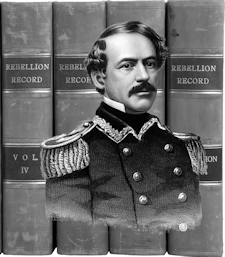January 28.—In the United States Senate a petition from citizens of Illinois, asking Congress not to abolish slavery in the District of Columbia, and asking for the expulsion of members who advocate it, was presented by Mr. Saulsbury, of Delaware
A resolution was offered by Mr. Foster, of Connecticut, and adopted, asking the Secretary of the Treasury whether any further legislation is necessary in order to take charge of the cotton and other lands of South-Carolina, now in possession of the Government, and to place them under cultivation, and also in relation to the blacks in these localities.
—Reconnoissances from Port Royal, S. C, having discovered the fact that the Savannah River, Ga., could be entered some distance above its mouth, and Fort Pulaski, commanding the entrance, flanked and cut off from all communication with the city of Savannah, an expedition of United States gunboats, under command of Captain C. H. Davis, U.S.N., and Captain C. R. P. Rodgers, U.S.N., was despatched yesterday for the purpose of entering the Savannah River in the rear of the Fort. Captain Davis’s detachment followed the Wilmington Narrows on the south side of the river, while Captain Rodgers sailed up Wall’s Cut, and thence into Wright River, on the north side. The two expedition appeared this morning on opposite sides of the savannah, both being detained by piles driven in to oppose their progress, or by the shallowness of the water. While in this position, Commodore Tatnall, of the Confederate Navy, came down the savannah with five rebel gunboats, and a fleet of lighters in tow with provisions for Fort Pulaski. The national gunboats immediately opened fire on him, and a triangular engagement took place, during which three rebel boats succeeded in reaching the Fort, and discharging their lighters. They then returned and passed between the National fleets, being nearly two miles distant from each, up the river. No damage was sustained by the National gunboats during the fight.—(Doc. 21.)
—A Division of the Union troops in Missouri, under command of Jeff. C. Davis, left Versailles on the march towards Springfield. The division comprised the Eighth and Twenty-second Indiana, the Thirty-seventh Illinois and Ninth Missouri, accompanied by two batteries of twenty-four pieces, and three companies of cavalry under Major Hubbard.








